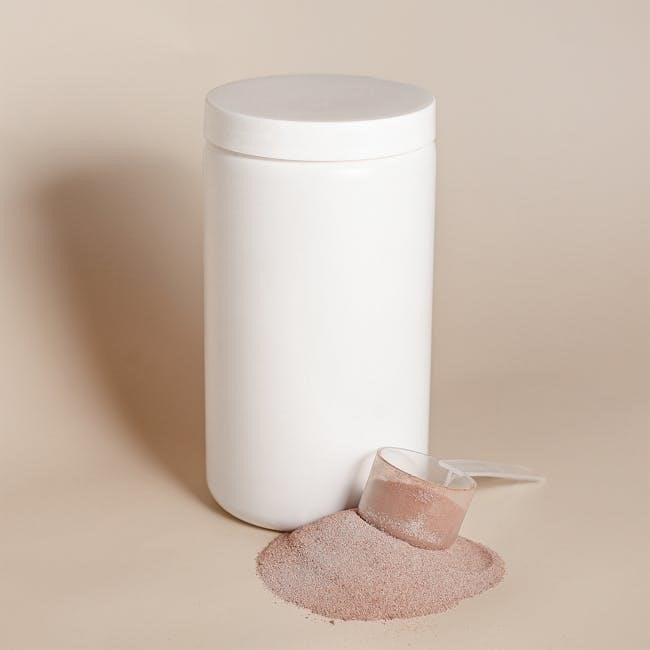A well-structured muscle gain diet plan is essential for building lean muscle mass. It focuses on balanced nutrition, including protein, carbohydrates, and healthy fats, ensuring optimal growth and recovery. Downloadable PDF guides provide convenient, detailed meal plans tailored to individual needs, promoting consistency and success in achieving fitness goals.
1.1 What is a Muscle Gain Diet Plan?
A muscle gain diet plan is a structured approach to nutrition designed to promote lean muscle growth and strength. It focuses on consuming a calorie-surplus diet rich in protein, carbohydrates, and healthy fats, tailored to individual needs. The plan often includes balanced meals, portion control, and hydration strategies. Downloadable PDF guides provide detailed meal schedules, making it easier to follow and track progress for optimal muscle development and recovery.
1.2 Importance of Nutrition in Muscle Building
Proper nutrition is the backbone of muscle building, providing the necessary fuel for growth and recovery. A balanced diet rich in protein, carbohydrates, and healthy fats ensures your body has the resources to repair and build muscle tissue. Without adequate nutrition, even the most intense workouts won’t yield optimal results. A well-planned diet supports energy levels, recovery, and overall muscle development, making it essential for achieving lean muscle gain effectively.
Caloric Intake for Muscle Gain
Adequate caloric intake is crucial for muscle gain, requiring a surplus to fuel growth. Typical daily needs range from 2500 to 3000 calories, depending on activity and goals.
2.1 Understanding Calorie Surplus
A calorie surplus is essential for muscle gain, as it provides the energy needed to build and repair muscle tissue. Consuming more calories than burned ensures your body has the resources to grow. A mild surplus of 250-500 calories daily is recommended to avoid excess fat gain while supporting lean muscle development. This balance is key to achieving your fitness goals effectively.
2.2 Daily Caloric Requirements for Muscle Gain
The daily caloric intake for muscle gain varies based on factors like age, weight, and activity level; Most individuals require a surplus of 250-500 calories above maintenance, with average needs ranging from 2,200 to 3,200 calories. A balanced diet with protein, carbs, and fats ensures optimal energy for workouts and recovery. Monitoring progress helps adjust intake to maintain lean muscle growth without excess fat gain. Consistency and accurate tracking are key.
2.3 How to Calculate Your Caloric Needs
Calculating daily caloric needs involves assessing factors like age, weight, height, and activity level. Start with your Basal Metabolic Rate (BMR) and apply an activity multiplier (1.2-1.6 for most). Add a surplus of 250-500 calories for muscle gain. Use online calculators or consult a nutritionist for accuracy. Adjustments based on progress ensure optimal muscle growth without overeating. Downloadable PDF guides often provide detailed step-by-step calculations.
Macronutrient Breakdown
A muscle-building diet requires a balanced mix of protein, carbohydrates, and fats. Protein aids muscle repair, carbs provide energy, and fats support hormone production. A downloadable PDF guide offers detailed macronutrient ratios for optimal growth.
3.1 Role of Protein in Muscle Building
Protein is crucial for muscle repair and growth, providing essential amino acids. Aim for 1.2-2.2g per kg of body weight daily. Include high-quality sources like lean meats, fish, eggs, and plant-based options. A well-structured muscle gain diet plan PDF outlines protein-rich meals to maximize muscle synthesis and recovery, ensuring progress toward your fitness goals effectively.
3.2 Importance of Carbohydrates for Energy
Carbohydrates are vital for energy during workouts, fueling muscle contractions and high-intensity exercises. Complex carbs like whole grains, fruits, and vegetables provide sustained energy. A muscle gain diet plan PDF emphasizes balancing carbs with protein to optimize performance and recovery, ensuring you have the stamina needed for effective training sessions and muscle growth.
3.3 Role of Fats in Hormone Production
Fats are crucial for hormone production, supporting testosterone and growth hormone synthesis, which are essential for muscle growth. Healthy fats like nuts, seeds, avocados, and olive oil are recommended in a muscle gain diet plan PDF to maintain hormonal balance. They also aid in absorbing fat-soluble vitamins, ensuring optimal nutrient utilization for muscle development and overall health.
Meal Plan Structure
A well-organized meal plan ensures balanced nutrition, with structured breakfast, lunch, dinner, and snack options. It provides flexibility to meet individual caloric and macronutrient needs effectively.
4.1 Sample 7-Day Meal Plan
A 7-day meal plan for muscle gain includes high-protein foods like eggs, chicken, and fish, paired with complex carbs such as oats and brown rice. Healthy fats from avocados and nuts support hormone production. Each day features balanced meals, including breakfast options like oatmeal with peanut butter, lunches with grilled chicken and quinoa, and dinners with salmon and sweet potatoes. Snacks like Greek yogurt and protein shakes are also included to maintain a calorie surplus.
4.2 Breakfast, Lunch, Dinner, and Snack Options
Breakfasts may include scrambled eggs with whole-grain toast or protein smoothies. Lunches often feature grilled chicken with quinoa and vegetables, while dinners might consist of salmon with sweet potatoes. Snacks like mixed nuts, fruit, or protein bars help maintain energy levels. These options ensure a balanced intake of protein, carbs, and fats, supporting muscle growth and recovery throughout the day.
4.3 Adjusting the Plan Based on Individual Needs
Customizing the diet plan involves tailoring calorie and macronutrient intake to personal goals. For instance, increasing protein for faster muscle repair or adjusting carbs for higher energy levels. Vegetarian or vegan options can replace meat, ensuring diverse nutrition. Regularly monitoring progress allows for tweaks, ensuring the plan remains effective and sustainable for each individual’s unique requirements and preferences. Adjustments promote better adherence and optimal results.

Hydration and Supplements
Staying hydrated is crucial for muscle recovery and growth. Aim for 8-10 glasses of water daily. Supplements like protein powder and creatine can enhance muscle-building efforts.
5.1 Importance of Water Intake
Staying hydrated is vital for muscle recovery and growth. Water aids in transporting nutrients, regulating body temperature, and lubricating joints. Even mild dehydration can hinder performance and recovery. Aim to drink 8-10 glasses of water daily, adjusting for activity levels and climate. Proper hydration supports digestion, nutrient absorption, and overall bodily functions, making it a cornerstone of a successful muscle gain diet plan.
5.2 Essential Supplements for Muscle Gain
Certain supplements can enhance muscle growth and recovery. Whey protein provides essential amino acids for muscle repair. Creatine boosts strength and endurance during workouts. Branched-Chain Amino Acids (BCAAs) reduce muscle soreness and promote recovery. Additionally, multivitamins and fish oil support overall health and reduce inflammation. These supplements, when combined with a balanced diet, can accelerate progress toward muscle gain goals, ensuring optimal performance and recovery.
5.3 Timing of Supplement Intake
Proper timing of supplements maximizes their effectiveness. Take whey protein within 30 minutes post-workout to aid recovery. Creatine can be consumed before or after training to enhance performance. BCAAs are ideal during workouts to prevent muscle breakdown. Multivitamins are best taken with meals, while fish oil supports recovery when taken at night. Consistent and strategic timing ensures optimal results and supports muscle growth throughout the day.

Combining Diet with Exercise
A balanced diet fuels workouts, while exercise enhances muscle growth. Proper nutrition ensures energy for training, and consistent exercise maximizes muscle development, creating a synergistic effect for optimal results.
6.1 Role of Resistance Training
Resistance training is crucial for muscle growth, as it stimulates muscle fibers and promotes hypertrophy. Lifting weights or using resistance bands challenges muscles, leading to strength and size gains. A well-structured workout plan, combined with a muscle gain diet, ensures proper recovery and growth. Progressive overload, gradually increasing weights, further enhances muscle development. Consistency and variety in exercises are key to targeting all muscle groups effectively. Proper nutrition fuels these workouts, making them essential for success.
6.2 Importance of Rest and Recovery
Rest and recovery are vital for muscle growth, allowing muscle fibers to repair and rebuild after intense training. Adequate sleep and downtime prevent overtraining, reducing injury risks. Proper recovery enhances muscle protein synthesis, essential for hypertrophy. A muscle gain diet plan should include nutrients that support recovery, such as protein and antioxidants. Without sufficient rest, even the best training and nutrition efforts may be undermined, slowing progress toward muscle gain goals.
6.3 Balancing Diet and Workout Routine
Balancing your diet and workout routine is crucial for muscle gain. A calorie-surplus diet provides energy for training, while resistance exercises stimulate muscle growth. Aligning macronutrient intake with training intensity ensures optimal results. For example, post-workout meals rich in protein and carbs aid recovery. A structured plan, like a muscle gain diet PDF, helps maintain consistency, ensuring both nutrition and training work synergistically to build lean muscle effectively and sustainably.
Monitoring Progress
Monitoring progress involves tracking weight, muscle growth, and adjusting the diet plan as needed. Consistency and patience are key to achieving muscle gain goals effectively;
7.1 Tracking Weight and Muscle Growth
Tracking weight and muscle growth is crucial for assessing progress. Use a scale to monitor weekly weight changes and a tape measure to track muscle circumference. Progress photos and strength gains also provide valuable insights. Regularly documenting these metrics helps identify trends and ensures the diet and workout plan are yielding desired results. Adjustments can then be made to optimize muscle gain.
7.2 Adjusting the Diet Plan as Needed
Regularly assess your progress and adjust the diet plan to meet evolving goals. If weight gain stalls, increase calorie intake by 5-10%. Conversely, reduce calories if fat gain exceeds muscle growth. Rebalance macronutrients as needed, ensuring adequate protein for muscle repair. Adjusting meal portions and food choices can help maintain momentum and achieve a lean, muscular physique. Consistency and flexibility are key to long-term success.
Consistency is crucial for achieving muscle gain. Adhering to your diet and workout routine daily ensures progressive overload and steady muscle growth. Inconsistent eating patterns can hinder progress, while maintaining a structured plan fosters optimal results. Over time, consistent effort builds discipline and supports long-term success in reaching fitness goals. Stay committed to your plan for sustainable muscle development. Avoid overeating or undereating, as both hinder progress. Neglecting balanced nutrition and inconsistent eating patterns are common errors that derail muscle gain efforts and overall success. Overeating can lead to excessive fat gain, while undereating deprives the body of essential nutrients for muscle growth. Both extremes disrupt progress and should be avoided. A balanced calorie intake, aligned with individual goals, is crucial. Ensure meals are nutrient-dense and portion-controlled to maintain a healthy surplus without overconsumption. This balance supports lean muscle gain and overall health. Avoiding these mistakes ensures sustainable progress in muscle-building efforts. Neglecting balanced nutrition can hinder muscle growth and overall health. A diet lacking essential nutrients disrupts energy levels and recovery. Ensure meals include adequate protein, carbohydrates, and healthy fats to fuel workouts and support muscle repair. Ignoring proper nutrition leads to poor performance and slower progress, making it harder to achieve muscle gain goals effectively. Inconsistent eating patterns disrupt muscle-building efforts by creating unpredictable energy levels and recovery. Irregular meals lead to muscle breakdown and slower growth. A structured meal plan ensures steady nutrient intake, promoting optimal performance and recovery. Skipping meals or overeating can sabotage progress, emphasizing the importance of sticking to a balanced and consistent diet for effective muscle gain. Achieving muscle gain requires dedication to a well-structured diet and consistent training. Stay committed, track progress, and adjust your plan as needed for long-term success. Download the PDF guide for a comprehensive approach to your fitness journey. Stay consistent with your muscle gain diet plan and training routine. Track progress weekly, adjusting calorie intake and macronutrient ratios as needed. Ensure adequate hydration and quality sleep for recovery. Download the PDF guide for a structured approach, and seek professional advice for personalized optimization. Patience and discipline are key to achieving your fitness goals effectively. Building lean muscle requires patience and dedication; Celebrate small victories and remind yourself of your long-term goals. Use the muscle gain diet plan PDF as a guide to stay on track. Surround yourself with supportive individuals who encourage your progress. Consistency is key, and every meal prep or workout brings you closer to success. Stay motivated and embrace the journey toward a stronger, healthier you. A muscle gain diet plan PDF is available for easy access, offering a comprehensive guide with meal plans, tips, and tracking tools to help you stay organized and committed. To access the muscle gain diet plan PDF, visit the official website and click on the download link provided. The PDF is free and includes detailed meal plans, tracking tools, and nutritional advice. Once downloaded, you can print or save it for easy reference. This convenient format ensures you have a structured guide to follow, helping you stay consistent with your muscle-building journey. The printable muscle gain diet plan PDF offers a clear, organized approach to nutrition. It provides easy-to-follow meal schedules, portion guides, and essential tips for maximizing muscle growth. The physical format allows for better tracking and adherence to the plan, making it easier to stay on course with your fitness goals. This practical tool helps users maintain consistency and focus on their muscle-building journey without confusion.7.3 Importance of Consistency

Common Mistakes to Avoid
8.1 Overeating or Undereating
8.2 Neglecting Balanced Nutrition
8.3 Inconsistent Eating Patterns
9.1 Final Tips for Success
9.2 Encouragement to Stay Committed

Downloadable PDF Option
10.1 How to Access the PDF Version
10.2 Benefits of the Printable Plan



